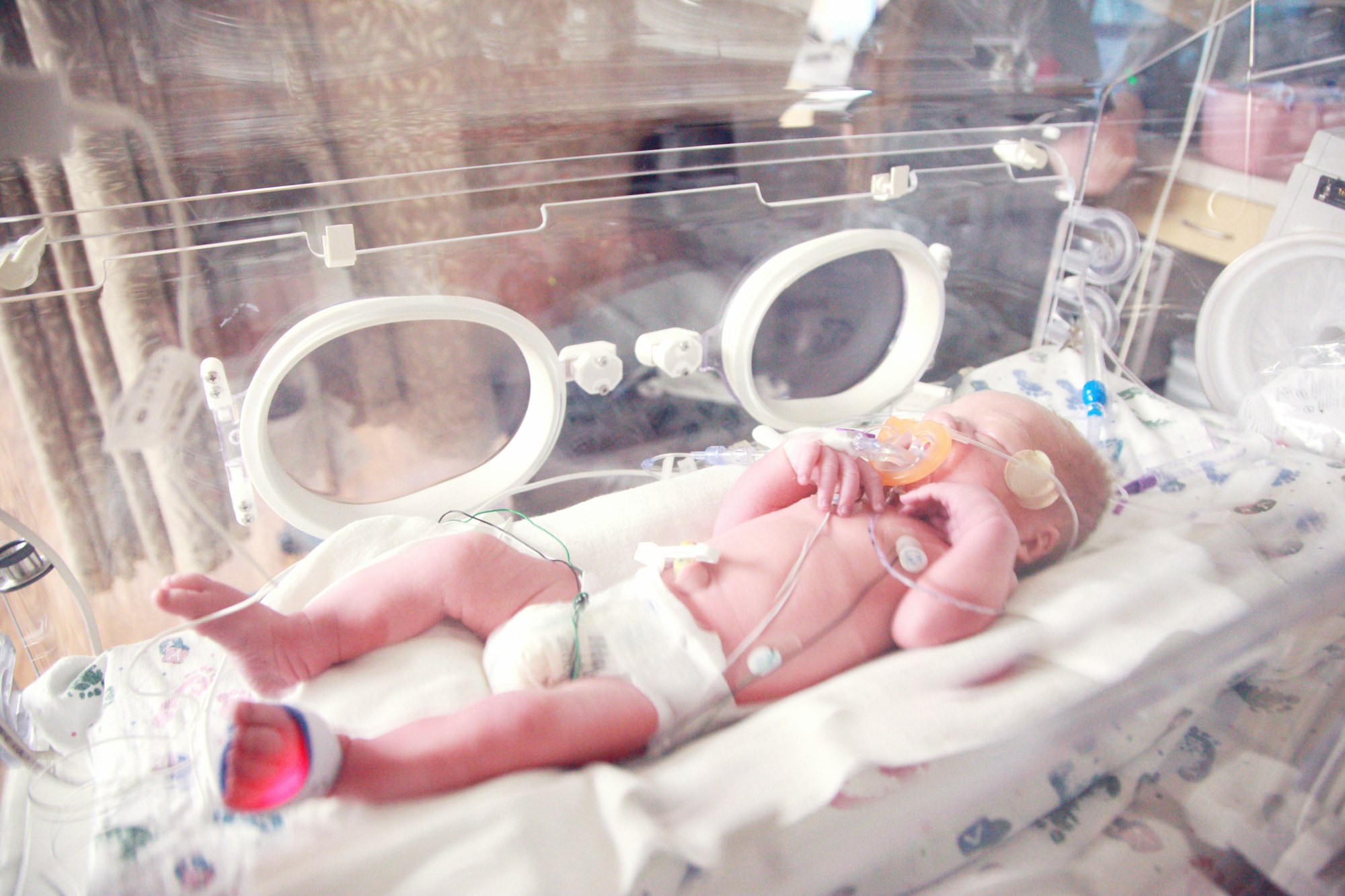Imagine the first days of your baby’s life. Joy, perhaps fatigue, certainly hope. Now, insert a sudden, unexpected twist—your little one needs to stay a bit longer in the hospital, or even be admitted to a neonatal unit. Concerns pile up: “Is my baby safe? How serious is it? Will we be apart?” Newborn hospitalization is a chapter few envisage, yet nearly 7-8% of newborns face this reality. For some families, hospital stays are short, mere hours extra for observation. For others, especially with more fragile babies, a NICU admission feels both daunting and utterly necessary. Most importantly: modern medicine has transformed outcomes, bringing both reassurance and a host of new questions. What truly causes newborn hospitalization? When should parents worry, and when can they breathe easier? How do hospital teams support the family’s emotional world, not just the baby’s medical needs? Let’s sort through the science, practical advice, and real-world reassurance to help you feel equipped—because when it comes to newborn hospitalization, information eases anxiety, and knowledge empowers every parent.
Understanding Newborn Hospitalization: Not Just One Story
Every newborn arrives with their own story. Sometimes, hospital admission is planned well before delivery. At other times, the neonatology team springs into action in response to urgent situations—premature arrival, breathing difficulties, or an infection no one saw coming. Consider this: about 7–8% of babies will require specialized hospital care. Most recover quickly and rejoin families soon.
Broadly, there are three main forms:
- Planned hospitalizations for pre-identified health concerns spotted through prenatal screening or ultrasounds—think congenital heart defects or cleft palates needing expert hands from day one.
- Unplanned hospitalizations, after birth, because of issues like prematurity or birth asphyxia.
- Transfers to advanced neonatal care for evolving conditions in the first few days.
Each pathway leads to the neonatal unit, but the journey is never identical.
Why Do Babies Need Hospital Admission? Exploring The Medical Reasons
Diagnosed In The Womb: Birth Plans with a Twist
Medical technology can now spot certain problems—congenital diaphragmatic hernia, esophageal atresia, heart defects—while your baby’s still in utero. Far from rare curiosities, these conditions mean the birth may be orchestrated in a hospital primed for specialized neonatal support. While the initial separation from parents can sting, this approach keeps the newborn in the right hands from the outset.
The Unpredictable: Admissions That Surprise
Here, the rhythm of newborn hospitalization takes on a different urgency. Prematurity stands out as a defining reason. Mark these facts:
- Extremely premature infants (22–26 weeks): Almost 60% survive even before 24 weeks—an astonishing feat of neonatal science. Complications can be considerable, but strides forward in care keep improving these numbers.
- Very premature babies (27–31 weeks): About 94% survival.
- Moderately premature babies (32–34 weeks): Survival rates exceed 99%.
Hospital stays, in these cases, extend until the baby catches up to the term equivalent date, allowing all body systems—lungs, gut, temperature control—to mature.
Other triggers for newborn hospitalization include:
- Difficult delivery or birth asphyxia (when the newborn doesn’t get enough oxygen)
- Unexpected congenital malformations
- Respiratory distress or delayed transition to breathing outside the womb
- Infections (sometimes passed from mother, other times acquired after birth)
- Metabolic disturbances (hypoglycemia, low calcium)
- Struggles with maintaining normal temperature, especially in low-birth-weight infants
- Exposure to certain maternal medications
Most babies bounce back; some require more time and technology. Imagine a bustling NICU, and you’ll see infants napping under blue phototherapy lights for jaundice, or tucked in incubators for warmth and protection.
Shifts To Neonatal Units After Seeming Fine
It’s not always instant—sometimes, a newly arrived baby develop issues only after a few hours or days. Early neonatal bacterial infections, for instance, aren’t visible at birth. Here, a short newborn hospitalization (for intravenous antibiotics, monitoring) is both a precaution and a necessity.
Other reasons for new admissions: metabolic hiccups, body temperature fluctuations, or the watchful eye of the medical team when something just isn’t “quite right.”
Hospital Care Settings: From Routine To High-Tech
The landscape of newborn hospitalization ranges from low-key to ultra-specialized.
- Routine Care: Most healthy babies go home after 2–3 days; this window covers basic assessments—Apgar, vitamin K, hepatitis B shot, metabolic and hearing screening, and advice on bathing, diapering, and feeding.
- Special Care Nursery: For babies just needing a bit more time or support—say, for mild breathing problems or trouble feeding.
- Neonatal Intensive Care Unit (NICU): For extremely fragile or sick infants. Here, the orchestration of care is continuous—ventilators, pulse oximeters, chest leads, and a symphony of beeping monitors safeguard each tiny patient.
- Surgical Units: Occasional but essential. Babies requiring surgery for serious congenital issues receive advanced anesthesia and continuous post-op vigilance.
What’s especially worth noting: hospitals today prioritize keeping mother and baby together, right from the early moments, wherever possible.
The Hospital Environment: A Blend of Science And Care
Fancy a look inside a NICU? Picture this: glass incubators lining softly lit spaces, wires and sensors quietly mapping every heartbeat and breath. Medical staff circulate, calm and focused, while parents—sometimes anxious, sometimes quietly hopeful—sit by their baby’s side (fingers through incubator portals, murmuring lullabies).
Specialized equipment—ventilators, CPAP for gentle air pressure, infusion pumps—stands ready. Strict infection control processes govern every visitor’s movement, every surface, to protect these immune-vulnerable infants. Family rooms in some units allow for overnight stays; skin-to-skin cuddles (kangaroo care) receive scientific backing for both bonding and temperature stability.
Medical Assessments And Routine Procedures
Initial hours set the stage. Babies admitted for newborn hospitalization undergo:
- Apgar scoring at birth—measuring heart rate, breathing, skin color, reflexes, and tone.
- Non-stop monitoring of vitals—heart rate, breathing rhythm, temperature, blood pressure. Blinking lights, gentle beeps.
- Screening for jaundice using safe, non-invasive light meters.
- Observing for proper feeding, regular urine and stool output. Growth and hydration status become central.
- Checking for metabolic issues with a heel-prick blood sample (covers conditions like phenylketonuria, hypothyroidism).
- Clustering routine procedures (nappy change, temperature, blood tests) to minimize stress.
- Reinforced hygiene measures to lower the risk of hospital-acquired infection.
All care is designed to be both precise and as gentle as possible. Medical teams work to minimize pain, using non-pharmacological comfort techniques alongside medicines if needed.
Treatments And Medical Interventions: What To Expect
Depending on why newborn hospitalization is needed, interventions span from simple to more intensive:
- Supportive Care: Warming devices or incubators, feeding with mum’s milk (or formula), sometimes via nasogastric tube if sucking is weak.
- Medications: Intravenous antibiotics for sepsis, vitamin K to prevent bleeding disorders, infusions to correct blood sugar or calcium imbalances.
- Respiratory Support: Depending on lung maturity, oxygen via nasal cannula, CPAP, or mechanical ventilation (machines “breathe” for the baby).
- Phototherapy: Blue-light lamps bathe some newborns, treating jaundice by breaking down bilirubin in the skin.
- Surgery: Neonatal surgery now offers excellent outcomes for many congenital anomalies; advances in anesthesia and monitoring have made these procedures much safer.
All interventions aim to stabilize, treat, and promote the newborn’s own capacities—never losing sight of long-term health.
Emotional And Parental Journey: Holding On To Hope
No scenario triggers parental worry quite like a newborn in a hospital cot. Emotions may swing wildly—anxiety, sadness, frustration. It is both expected and understandable. Hospitals now offer not just medical but psychological support—a counselor’s ear, peer groups, family meetings. Participation in care (bathing, kangaroo care, feeding) comfortingly connects parents to daily routine, giving purpose to the wait.
Children’s siblings can be involved in age-appropriate ways, reducing the sense of division within the family during newborn hospitalization. Early recognition of mental health strain is a priority. Psychological support is not a luxury—it’s part of the medical plan.
Everyday Practicalities During Newborn Hospitalization
Practicalities demand attention: unit safety rules, hygiene protocols, all communicated to parents from the first moment. Hand sanitizers are everywhere, and gowning before entry is sometimes needed. Flexible visiting hours support parental presence, but sibling visits may be limited.
Breastfeeding support is prioritized, with access to breast pumps, lactation consultants, and privacy. Parents are encouraged to bring familiar items—shawls, books, snacks—helping comfort and allow longer stays near the baby.
Preparing For Discharge And What Comes After
Discharge is a milestone, but it follows a strict list: the baby must maintain temperature unassisted, feed well, show weight gain, and be clear of any unresolved conditions. Before going home, every parent receives:
- Detailed counseling on feeding, medication, recognizing warning signs (poor feeding, lethargy, fever).
- Education about care of wounds or medical lines, if present.
- Arrangements for timely follow-up appointments and referrals.
Families are reminded about the safety at home—sleeping positions, temperature control, infection prevention strategies.
Frequent Concerns And Complications
Several hurdles might pop up during a newborn hospitalization:
- Jaundice: Treated with phototherapy, monitored carefully.
- Feeding difficulties: Sometimes the huge focus, particularly for preterm or medically fragile babies; weight checks and practical feeding support are routine.
- Infections: Parents trained to spot signs—reduced interest in feeding, persistent fever, unusual drowsiness.
- Blood sugar swings: Monitored and treated, especially in small or at-risk babies.
- Skin problems: Diaper rash and cradle cap, while common, are watched and managed by nurses.
None of these are rare, nor do they spell disaster; most resolve with straightforward medical and nursing assistance.
Follow-Up, Support, And The Importance Of Community
Once home, care continues with pediatric appointments—to monitor growth, support neurodevelopment, and keep vaccinations on schedule. Any baby who spent time in the NICU or experienced complications is offered careful developmental checks, and early intervention as needed. Support for parents extends beyond hospital doors—a network of community and online help, as well as follow-up counseling, are now recognized as part of true recovery.
Economic Considerations
It’s impossible not to notice—the costs tied to newborn hospitalization add up. Reviewing insurance coverage early (sometimes even before birth if risk is known) is a practical step. Hospital staff can advise on support schemes, cost reductions, or payment plans for hospital stays, medications, and any special equipment or travel.
Innovation And The Future
Medical science in newborn care continues to leap forward. Family-centered NICU models, telemedicine for connecting with care teams, personalized approaches based on each baby’s genetics and needs—these are no longer far-away dreams. Increasingly, single-family NICU rooms provide safer, more intimate care environments. The emphasis on both medical excellence and family involvement marks a sea change in newborn hospitalization, putting not just the baby, but the entire family, at the core of care.
Key Takeaways
- Not every birth ends in an easy return home—newborn hospitalization is a common, well-managed part of modern healthcare, ensuring the best for mother and baby.
- Causes for hospital stays are many: from birth planned for known conditions, to surprises like prematurity or sudden illness after delivery.
- Babies may spend time in simple nurseries, special care units, NICUs, or surgical wards, based on their individual needs.
- Parental presence, mental health support, and family-friendly routines aren’t luxuries but fundamental elements of recovery and bonding.
- Advances in technology and care models have revolutionized safety, outcomes, and even the comfort of newborn hospitalization.
- Practical, reliable information alongside emotional support improves outcomes for both parents and babies.
- For questions specific to your baby’s health, never hesitate to ask the care team—and remember, support is always at hand.
- For extra guidance and free personalized child health questionnaires, download the application Heloa.
Questions Parents Ask
How long does a newborn usually stay in the hospital?
The duration of newborn hospitalization depends on medical circumstances. Healthy babies might go home after two or three days. If there’s prematurity or medical complications, it could stretch to several weeks. Doctors check every baby’s readiness—temperature regulation, feeding, weight gain—before considering discharge. Rest easy, the goal is always to send your baby home safe and strong.
What is a neonatal intensive care unit (NICU)?
A Neonatal Intensive Care Unit (NICU) is a high-tech, specialized area for babies who require closer monitoring, advanced medical support, or help with breathing and feeding. Staffed by specialists, equipped with incubators, ventilators, and round-the-clock vigilance, the NICU environment may feel unfamiliar but is entirely focused on giving each child the best start possible. Parental participation is encouraged every step of the way.
Is it normal to feel anxious or overwhelmed during a newborn’s hospitalization?
Completely. Any parent in this situation can feel a rollercoaster of emotions—worry, sadness, confusion—to varying degrees. The hospital team includes not just doctors and nurses but also counselors and social workers, ready to help families manage their stress and emotions. It is always encouraged to talk about feelings and access support, because caring for yourself supports your baby too.
Further reading:









